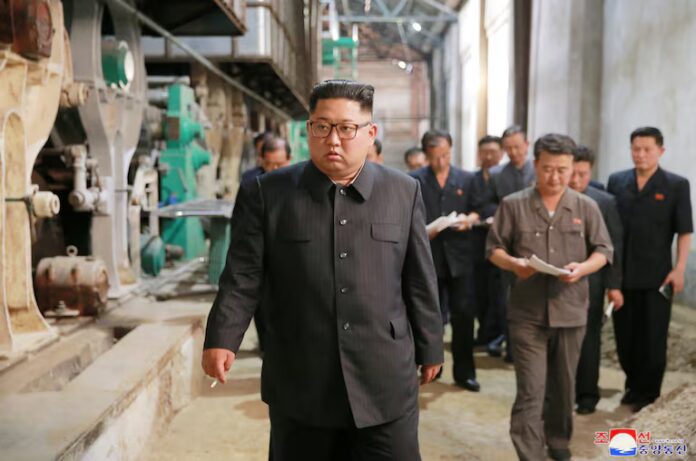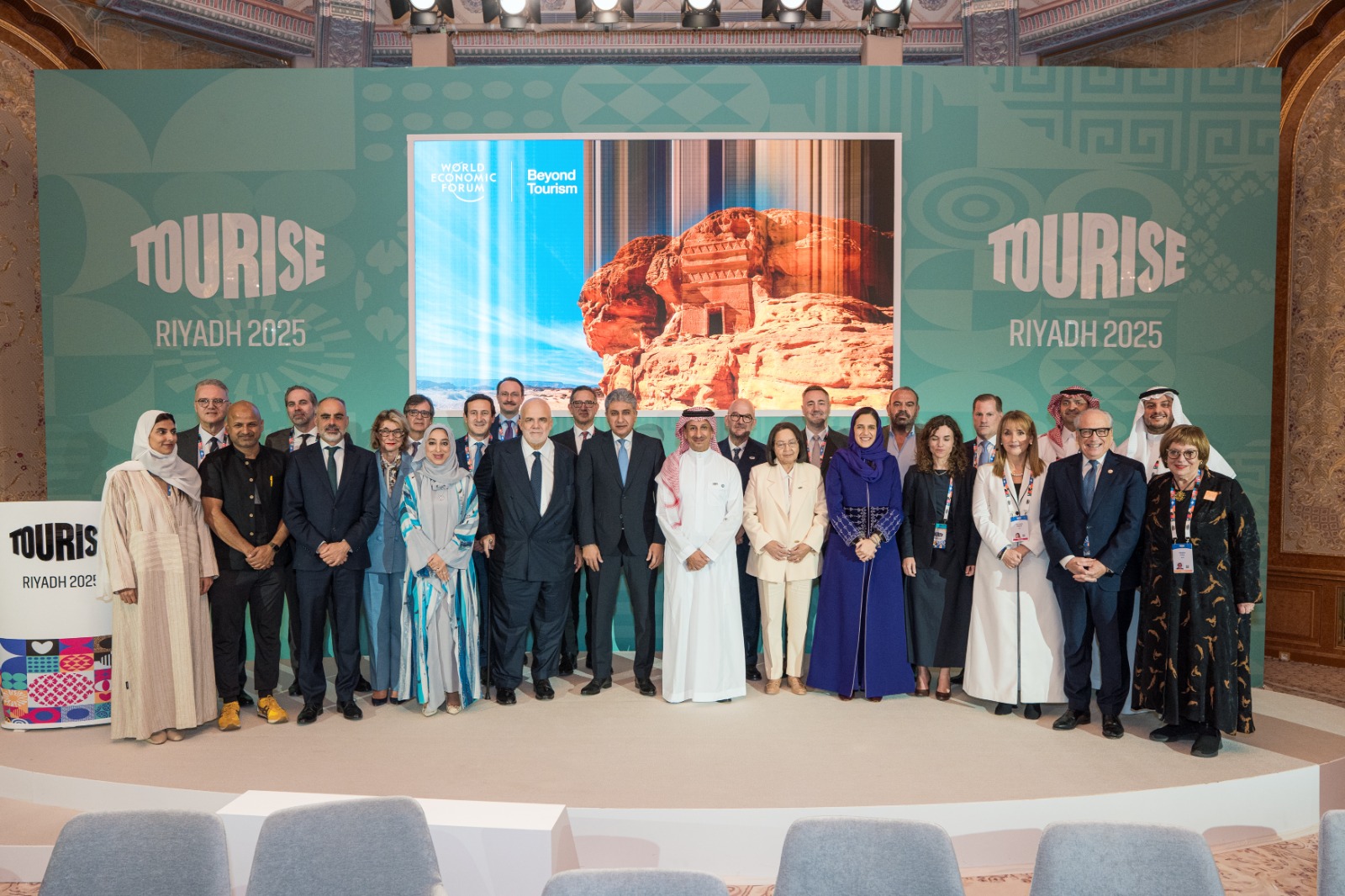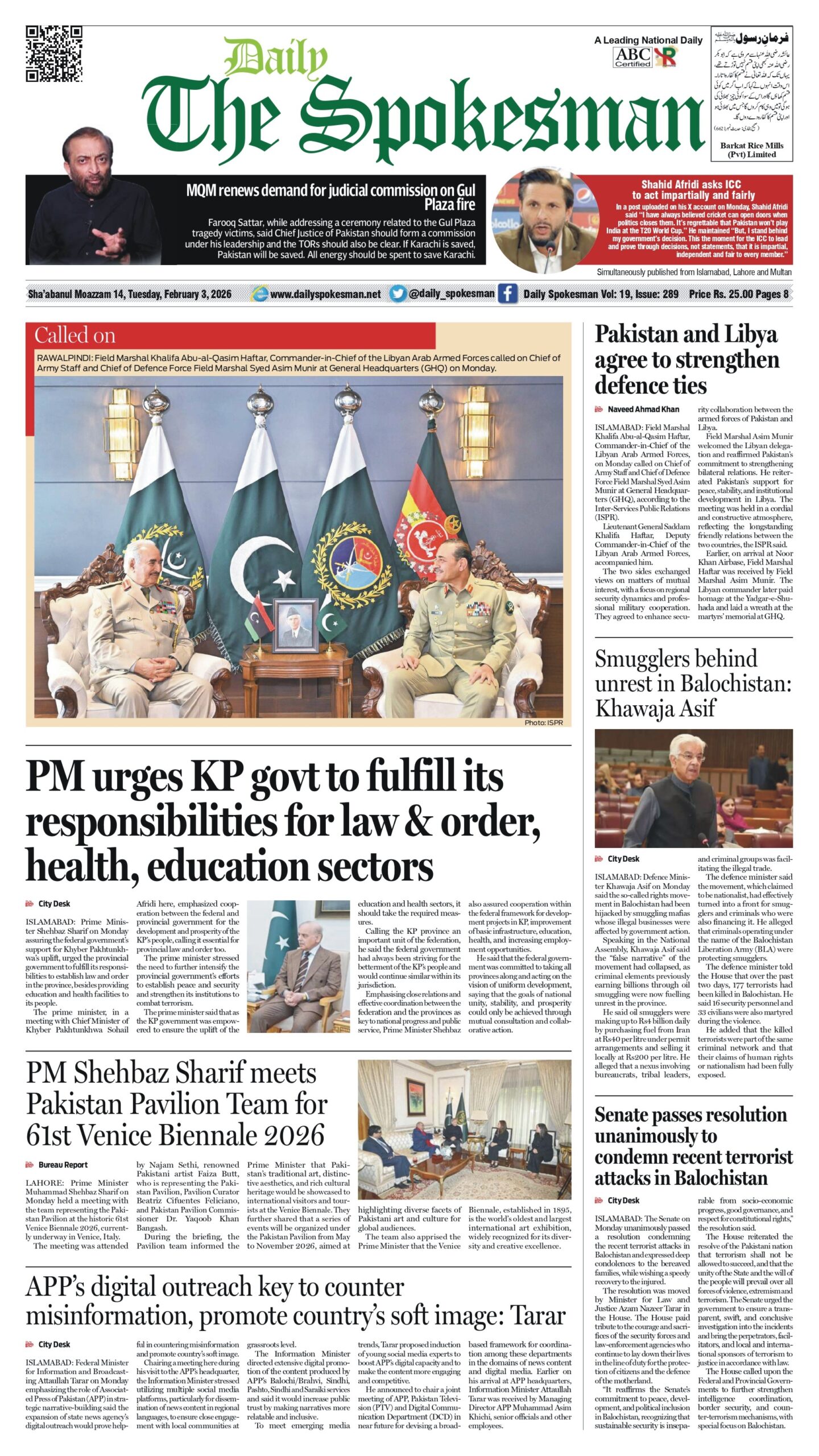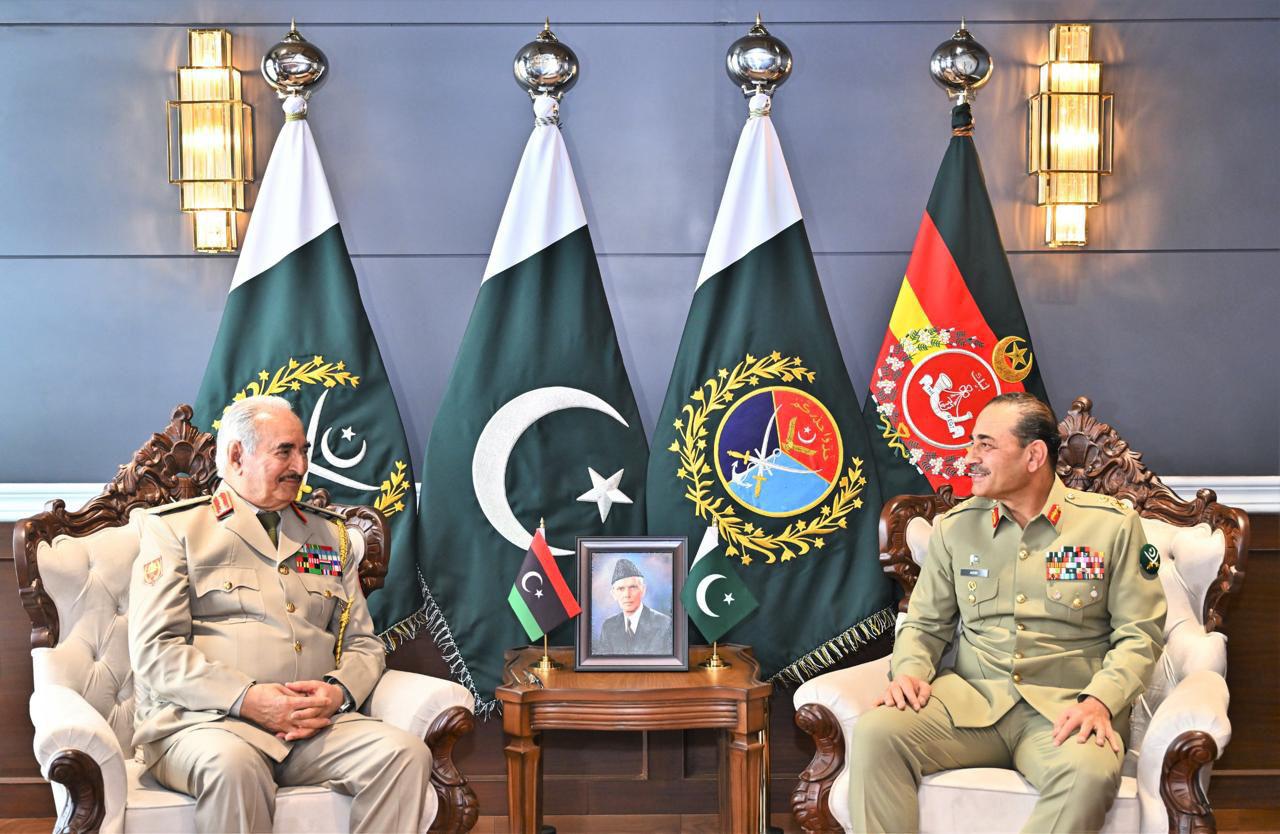
Associated Press of Pakistan: Yesterday, Pakistan’s first metro train project completed under China-Pakistan Economic Corridor was inaugurated in Lahore. This train is expected to transport over 250,000 people every day. What is your response?
Zhao Lijian: I’ve also learned of this good news. As a diplomat posted in Pakistan for many years, I extend my warmest congratulations.
The Orange Line is an early harvest project under the China-Pakistan Economic Corridor (CPEC). Its inauguration introduces an era of metro train service for Pakistan. As Chief Minister of Punjab Sardar Usman Buzdar said at the Orange Line’s inauguration ceremony, it is one of the most advanced urban rail transport projects in South Asia, providing modern, efficient, environmental-friendly and safe transport service to Lahore while reducing air pollution. During construction, this project created more than 7,000 local jobs, and I understand nearly 2,000 more jobs will be created during its operation and maintenance.
The completion of the Orange Line also marks a major outcome of the CPEC. China will continue working with Pakistan to advance the building of the CPEC and forge it into a quality demonstration project of the Belt and Road Initiative.
The Paper: The U.S. Defense Security Cooperation Agency released a statement on October 21, saying that the Department of State has approved arms sales worth of about $1.8 billion to Taiwan. The Chinese foreign ministry spokesperson said on October 22 that China will make legitimate, necessary response according to how the situation develops. Has China taken any step yet?
Zhao Lijian: As China pointed out on multiple occasions, the U.S. arms sales to the Taiwan region severely violate the one-China principle and the three China-U.S. joint communiqués, and seriously undermine China’s sovereignty and security interests. China firmly opposes and strongly condemns it.
To uphold national interests, China decides to take necessary measures to sanction U.S. companies involved in the arms sales to Taiwan including Lockheed Martin, Boeing Defense, Space & Security (BDS) and Raytheon, as well as the U.S. individuals and entities who played an egregious role in the process.
Once again we urge the United States to strictly fulfill its commitment to the one-China principle and observe the three China-U.S. joint communiqués, and stop selling weapons to Taiwan or having any military ties with it. We will continue taking necessary measures to safeguard national sovereignty and security interests.
CCTV: The Chinese peacekeepers have completed their reconstruction mission at the Beirut port, Lebanon. Can you give us more details?
Zhao Lijian: From September 30 to October 23, together with peacekeepers from France, Spain, Cambodia and other countries, China’s 19th batch of peacekeeping engineer detachment to Lebanon helped with reconstruction of the Beirut port.
Over less than a month, they cleaned up nearly 60,000 square meters of debris, three streets and repaired the Lebanese foreign ministry complex, while completing other tasks including recycling reusable materials, searching for cultural relics, and protecting and reinforcing damaged heritage sites. They worked almost 10 hours a day and six days a week. Their high working standard and efficiency enabled them to accomplish the mission ahead of schedule. The Chinese peacekeepers’ capability and professionalism has won acclaim from UN Interim Force in Lebanon (UNIFIL), the Lebanese troops, and the local government and people.
As a permanent member of the UN Security Council, China is the second largest contributor to the UN regular budget and peacekeeping budget, and we have dispatched more peacekeepers than any other permanent member of the Security Council, making us a key force in UN peacekeeping missions. China’s contribution to UN peacekeeping missions demonstrates our vision of building a community with a shared future for mankind. China will continue supporting UN peacekeeping missions with concrete actions and injecting greater positive energy into world peace and stability.
Xinhua News Agency: Diplomatic envoys of Arab states in China just concluded their visit to Xinjiang. Could you give us more information?
Zhao Lijian: From October 19 to 22, diplomatic envoys posted in China from 20 Arab states and the AU visited Xinjiang. Shohrat Zakir, chairman of Xinjiang Uyghur Autonomous Region, met with the delegation. The delegation visited local enterprises, schools, poverty alleviation projects and grass-roots communities. They were invited to the households to talk face-to-face with villagers, gaining a deep understanding of the situation in Xinjiang in such aspects as social stability, ethnic equality and unity, improvement of people’s livelihood and economic development. The delegation also went to Islamic institutes and mosques to learn about the situation on protection of freedom of religious belief. They spoke positively of Xinjiang’s achievements in the economic, social and human rights development. Some envoys pointed out that what’s been said about human rights in China and Xinjiang by some external parties are nothing but baseless lies. They said that Xinjiang’s experience in combating terrorism and radicalization is worth learning from and they stand ready to contribute to strengthening practical cooperation between Arab states and Xinjiang.
Seeing is believing. Justice resides in people’s hearts. Xinjiang’s achievements in economic and social development and poverty alleviation are there for all to see. National unity and harmony and human rights progress are there for all to see. The effects of its counter-terrorism and deradicalization efforts are there for all to see. The Chinese side welcomes friends from all countries, including Arab and Islamic states, to visit Xinjiang and tell the world faithfully what a fantastic place it is.
Kyodo News: Japanese Prime Minister Yoshihide Suga has just announced to the Diet that Japan will be carbon neutral by 2050, and President Xi has announced earlier that China will strive to achieve carbon neutrality by 2060. How do you comment on Japan’s carbon neutrality target? Will you consider cooperating with Japan on climate change?
Zhao Lijian: China appreciates and welcomes Japan’s announcement that it will achieve carbon neutrality by 2050. We believe that it will help strengthen the collective efforts of the international community to address the challenges of climate change.
As people often say, unity makes us strong while isolation makes us vulnerable. Climate change is a major challenge facing all mankind, and all countries should uphold multilateralism, join forces and pool resources to deal with it. China and Japan have maintained good communication in this regard, and we stand ready to enhance discussions with Japan on realizing post-COVID-19 green recovery. This year marks the fifth anniversary of the Paris Agreement. China is willing to work with all parties, including Japan, to promote the full and effective implementation of the accord and to work together to build a win-win, fair and reasonable climate governance mechanism.
Shenzhen TV: October 25 is the “Anti-Sanctions Day” established by the Southern African Development Community (SADC). Yesterday, a number of African countries called on the West to lift illegal sanctions on Zimbabwe as soon as possible. What is China’s comment?
Zhao Lijian: Last year the 39th SADC Summit of Heads of State and Government declared October 25 as the “Anti-Sanctions Day” and called on the United States and a few other countries and organizations to lift sanctions imposed on Zimbabwe as soon as possible. We noted that as the second “Anti-Sanctions Day” was marked yesterday, African countries once again spoke out. China supports their voice for justice.
The long-term unilateral sanctions imposed on Zimbabwe by a handful of countries and organizations, including the United States, have seriously damaged Zimbabwe’s ability to develop its economy and improve people’s livelihood, hindered efforts to deepen cooperation and achieve common development in the Southern African region, and also impacted the international political and economic order and the global governance system. China has always firmly supported Zimbabwe and other African countries in opposing external interference and pursuing the path of independent development. We hold that the international community should play a constructive role in helping Africa maintain stability and achieve development. The few countries and organizations, such as the United States, should lift illegal sanctions on Zimbabwe as soon as possible and take practical actions to help it fight the epidemic and resume economic development.
China Daily: It is reported that some of China’s donated supplies to the UN Relief and Works Agency for Palestine Refugees in the Near East (UNRWA) to fight COVID-19 have arrived in Palestine, Jordan and Lebanon. What is China’s consideration in conducting such a large-scale aid operation at this time?
Zhao Lijian: This past weekend, planes loaded with “health kits” containing personal protective equipment for Palestinian refugees in and out of Palestine arrived in relevant countries. The “health kits” will be distributed through the UNRWA to Palestinian refugees in Palestine, Jordan, Lebanon and Syria. At the same time, the anti-epidemic materials provided to the medical institutions affiliated to UNRWA in the above-mentioned four countries have also been shipped out by sea and are expected to arrive between the end of October to November.
China has been actively supporting the work of UNRWA and has repeatedly increased its annual contributions to the agency. The successive COVID-19 outbreaks and continued spread in these four countries have put Palestinian refugees in dire straits. China is deeply concerned about the great difficulty faced by UNRWA in providing assistance to Palestinian refugees as a certain country has cut off funding support for it. China has also been hit hard by COVID-19, but despite all the difficulties, China has provided assistance to Palestinian refugees and UNRWA.
This aid operation, consistent with the previous donations made to Palestine and other countries, the medical experts dispatched to Palestine, and annual donation to the UNRWA, embodies China’s firm support for Palestinians and other Arab states in the fight against COVID-19, for UN agencies and multilateralism, and for international fairness and justice. China will continue to follow the vision of a community with a shared future for mankind, provide assistance to the best of its ability in accordance with the needs of Palestine and other countries in the region, and contribute to the early realization of a comprehensive, just and lasting settlement of the Palestinian issue.
Beijing Daily: Seychelles candidate Wavel Ramkalawan from the Linyon Demokratik Seselwa party (Seychelles Democratic Union) won the presidential election with 54.9 percent of the total votes, said electoral commission chairman on October 25. What is China’s comment on this?
Zhao Lijian: China sincerely congratulates Mr. Ramkalawan on his election as President of Seychelles. We believe that under his leadership, the government and people of Seychelles will make new and greater achievements on the path of national development.
Seychelles is a good friend and partner of China in Africa, and the traditional friendship between China and Seychelles is profound. China is ready to work with Seychelles to consolidate friendship and mutual trust, deepen mutually beneficial cooperation and international coordination, and elevate bilateral relations to a higher level.







